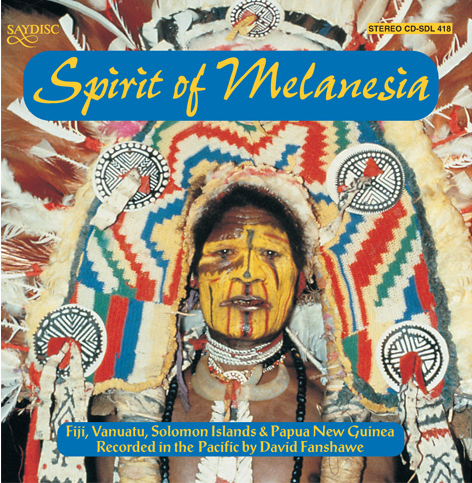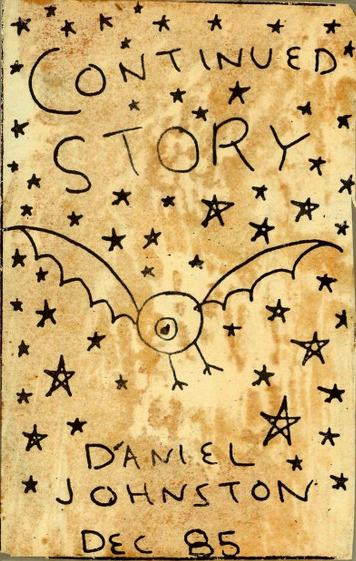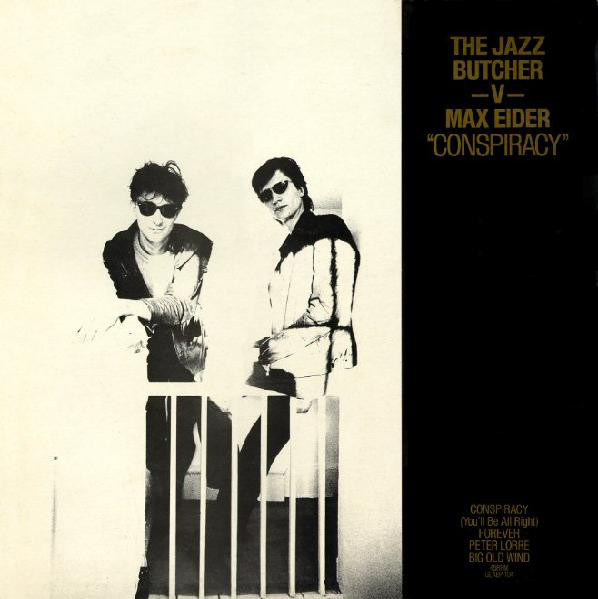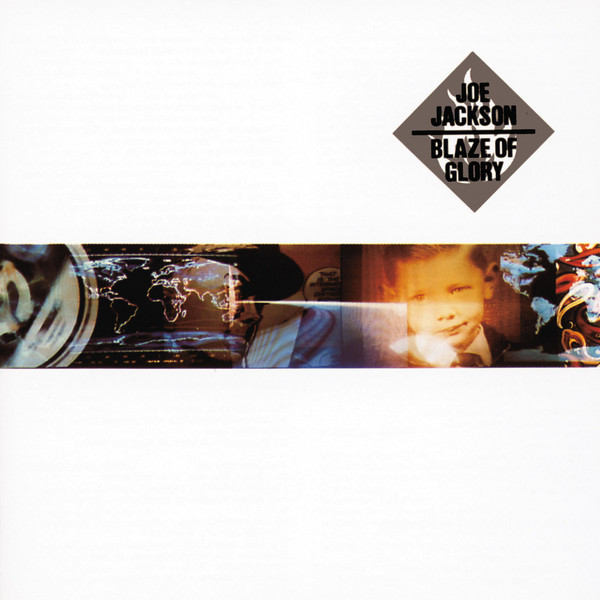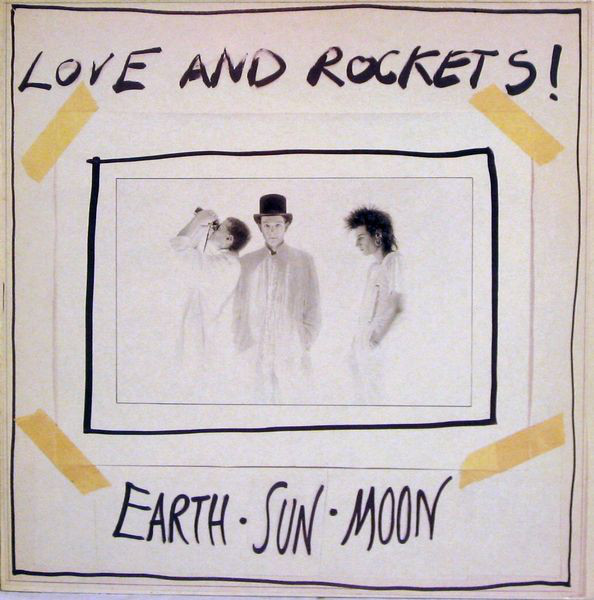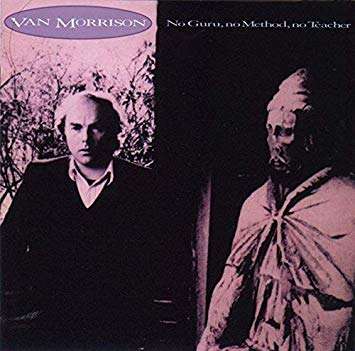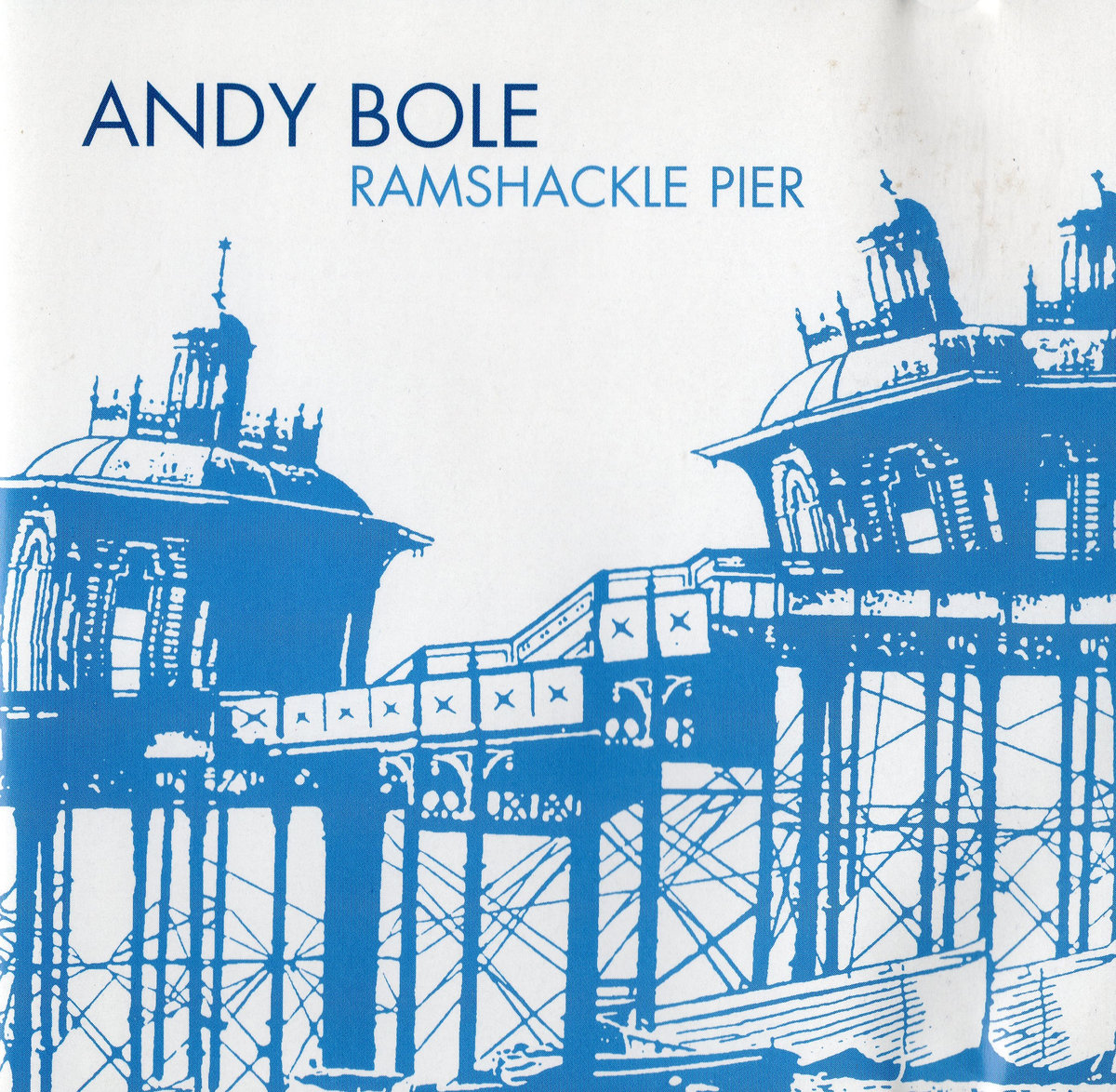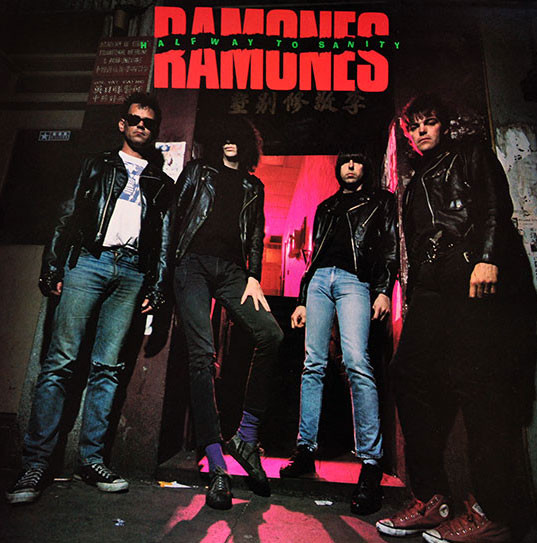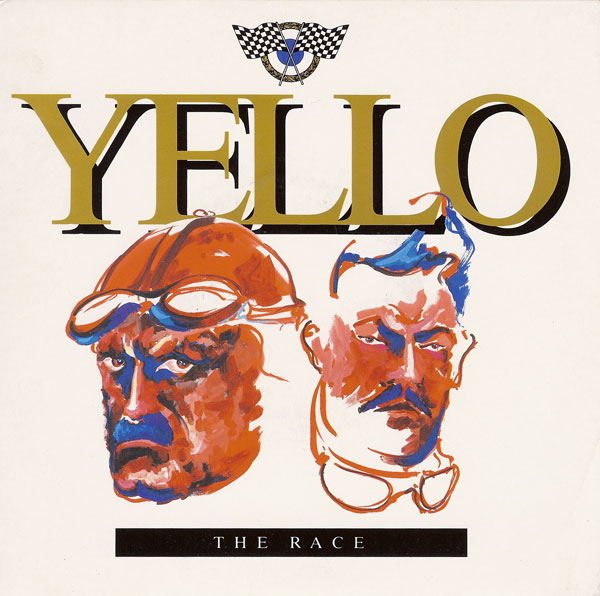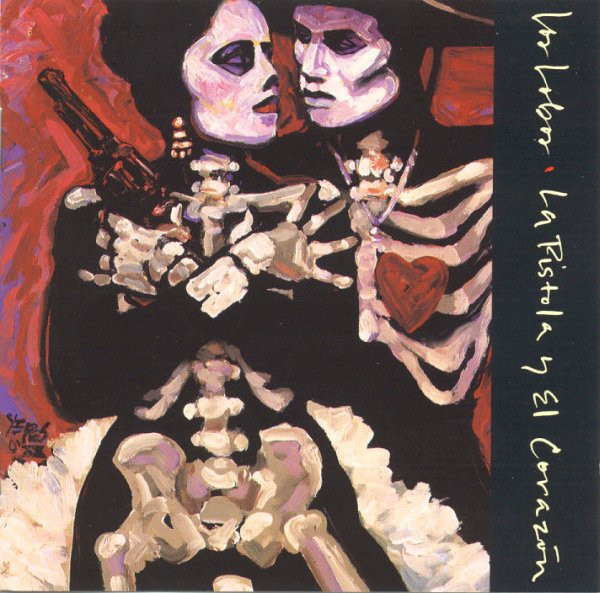
“Las Amarillas” (1988) – Los Lobos * Produced by Los Lobos * Label: Slash/Warner Bros.
Los Lobos topped the charts in 1987 with their polished-up vintage T-bird version of “La Bamba.” Perhaps drawing inspiration from the scene in the eponymous movie where Ritchie Valens hears the song’s traditional incarnation (performed by Los Lobos as a late fifties cantina band), they went unplugged for their follow-up album La Pistola y El Corazon, a nine-song folklorico album that clocked in at only twenty-five minutes and featured striking cover art by George Yepes.
Seven of the tracks are traditional, while the other two are trad-sounding originals. The best information you can get about the album is in the February 1989 issue of Frets magazine, in which the band gives background on each of the songs and their instrumentation.
Cesar Rosas identifies “Las Amarillas” as a primitive huapango from the backwoods of Guerrero, where “you use a drum instead of a bass, two nylon-string guitars, and two violins.” In a 1988 review of the album in the Los Angeles Times, Victor Valle writes that the song “goes into a territory of passion some Mexicans may not even recognize,” with “allusions to beaks that peck and nests that squeeze,” giving Rosas’ vocal “the earthy eroticism of Campesinos ignorant of puritanical shame.”
Not mentioned anywhere is the song’s coda, where Louie Perez’s floor toms shift into a pulsing 4/4, David Hidalgo plays the Native-American signifier riff of old westerns on his violin, and band roadie Mouse de la Luz, on bells, sounds out the melody to the Hamm’s Beer “Land of Sky-Blue Waters” theme.

